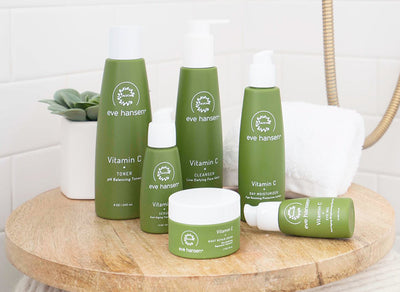
Tea Tree Oil: An Overview
For optimal hair, skin, and nail health, tea tree essential oil is a must! Used as a natural medicinal remedy for centuries in native Australia – its place of origin – tea tree oil has been used to treat colds, coughs, and a wide variety of skin conditions. As tea tree oil gains notoriety, we’re seeing more questions arise about its proper usage and benefits. Luckily, we’ve compiled a list of 7 of the most common questions we receive about tea tree oil to provide some clarification on how to make the most out of this essential oil.
1. What is Tea Tree Used For?
Undoubtedly, the most common question about tea tree oil is simply, ‘what’s it used for?’. Tea trees oil is versatile and can be used in aromatherapy, skin care, hair care, and home care. Some of our favorite uses include: an all-purpose cleanser, skin tag remover, acne treatment, air purifying aromatherapy oil, cold sore treatment, foot fungus treatment, athlete’s foot treatment, lice treatment, and wart and skin tag remover.

2. Can I Put Tea Tree Directly On My Skin?
Always dilute tea tree oil for any use other than aromatherapy. Tea tree oil can be effectively diluted with carrier oils such as sweet almond oil or coconut oil. Once diluted, tea tree makes an ideal natural remedy for treating wounds, cuts, infections, and other skin ailments. (Read about tea tree’s effect on foot fungus here)
3. How Does Tea Tree Help Treat Acne?
Tea tree oil’s antimicrobial and anti-inflammatory properties make it an effective acne treatment and spot treatment. Tea tree calms redness, swelling, and inflammation while cleansing clogged pores.
4. How Does Tea Tree Oil Rid Skin Tags?
Through anecdotal evidence, tea tree has gained popularity as an effective skin tag remover. Skin tags are flesh-colored, painless growths that hang off the skin, but are unsightly and uncomfortable when they develop in sensitive locations. When applied to a skin tag, the dehydrating effects of tea tree oil dry up the growth until it shrivels up and falls off. To utilize this treatment, soak a cotton ball in an apple cider vinegar solution with drops of tea tree essential oil, and squeeze out the excess liquid. Place the cotton ball on the skin tag and secure it with a bandage. Repeat these steps three times daily for 2-3 weeks. It will take some patience to see results, but this method is easy, homeopathic, and less painful than the traditional skin tag removal methods of freezing, tying, cutting, and cauterization.
5. Is Tea Tree Safe For Pets?
Oral ingestion of tea tree is NEVER safe, and therefore proper storage of the oil is crucial. However, if correctly diluted in a large amount of water, tea tree oil can make a natural solution that is safe to use on your pets as a flea repellant. The recommended ratio is 0.1 – 1.0% strength, to be dispensed topically. In proper proportion, tea tree has great benefits for our pets, but using the oil at 100% strength can be hazardous. Doing your research and consulting with a veterinarian is always recommended when it comes to the safety of our furry little friends 🤗

6. How Does Tea Tree Oil Improve Scalp Health?
The thin skin on the scalp is particularly vulnerable to skin ailments and infections. Today, tea tree oil is commonly used as an ingredient in many hair products because of its ability to fight against many types of bacteria, viruses, and fungi. As an anti-fungal agent, this essential oil is used to treat scalp infections such as dandruff by removing chemicals and dead skin cells from the scalp. Tea tree is also an active lice treatment as it kills off the skin intruders. Using tea tree oil as a lice treatment has also show to reduce and prevent the laying of eggs as well.
7. Is Tea Tree Effective for my Skin Type?
Depending on your skin type, tea tree can produce visible improvements to your unique complexion.
- Dry Skin & eczema: Tea tree has shown to soothe dry skin by reducing irritation, inflammation, and itching caused by skin dryness.
- Oily Skin: Tea tree’s effect on oily and acne prone skin can be attributed to its antiseptic and antibacterial qualities that reduce inflammation and act effectively against the lingering bacteria that causes acne breakouts. This oil can penetrate deep into the skin to help unblock the sebaceous glands – leading to the unclogging of stubborn pores, disinfection of the skin, and reduction in the appearance of acne.


